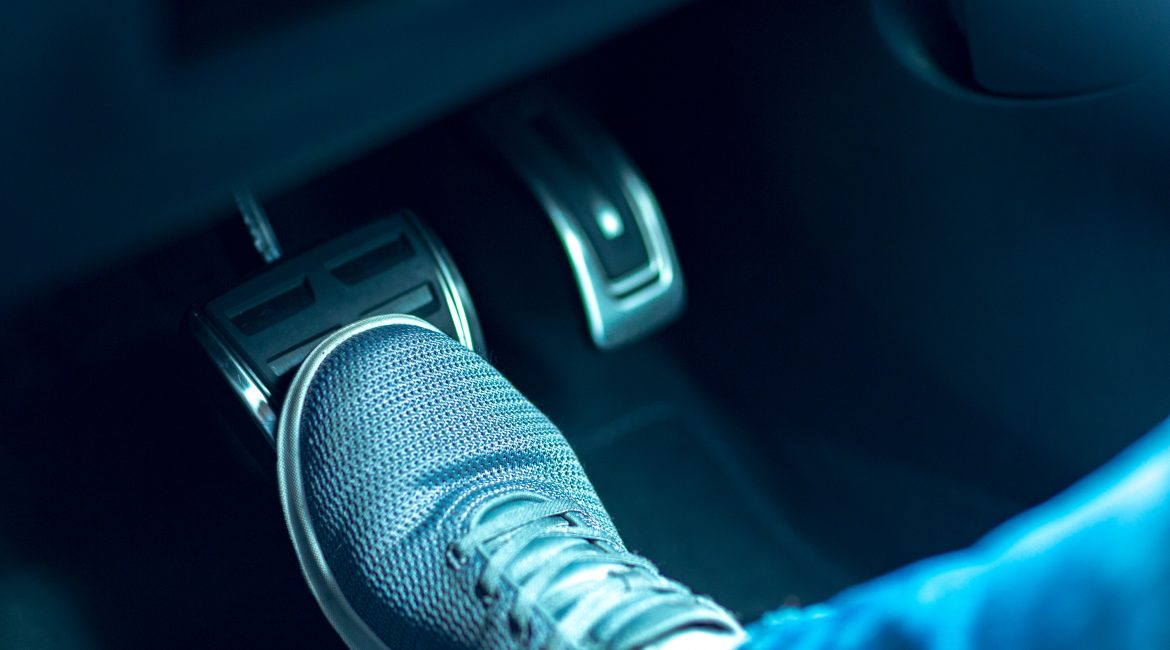What would you do if your brakes failed? It’s not really a scenario any of us would like to think about, but when you don’t look after your car, it can’t look after you. Fortunately, your brakes are quite easy to look after and ensure they are always in good working order. Below are some easy ways for how to tell if your brake pads need replacing.
There are a number of things you can do to ensure your brakes are in good health, the first of which is to make sure you stick to your car’s service plan. Your car’s service intervals are outlined in your service book. Make sure you stick to this.
Sticking to a service plan will not only ensure your car keeps you safe and help you to avoid any mechanical failures leaving you stranded on the side of the highway, but it will also boost your car’s resale value as potential buyers look for the service history of the car and whether or not this was adhered to.
How to tell if your brake pads need replacing
1. Your brakes are making a noise
The first sign of faulty brakes is when they start to make a noise when you brake. Nowadays, brakes are incredibly efficient and silent. This means that you should not hear any noise when braking when your engine is running.
If your car’s brakes are making a noise, then this might mean that your brake pads are worn down or something is broken and needs to be fixed or replaced. If you hear a hissing or screeching noise, this typically indicates that your brake pads need to be immediately replaced. If you hear a metallic grind, then this means the brake disc is starting to suffer from permanent damage.
2. Wheels lock up when braking
Locking up is when one or more of your wheels come to a complete stop and start to slide when you brake. This is actually quite terrifying and can be easily avoided through proper brake maintenance.
Basically, when a lock up occurs, your brakes are applying uneven pressure to your wheels. In most cases, one brake will apply too much pressure and cause the wheel to lock up and your car to slide out.
3. Imbalanced steering
A large factor of your driving experience is based on the stability of your brakes. This means that when you brake, your car needs to come to a stop in a straight line. If your car starts to pull to one side or twitches when you brake, this could be from an issue with your brakes.
Perhaps one of the brakes has gone out of alignment or it is an issue with your car’s hydraulic system. If you notice any imbalance when braking, make sure you get your car checked out.
4. Strange pedal feel
Your brake pedal is a great source of feedback for the functioning of your brakes. Your pedal feel should be able to inform you of the amount of force applied by the brakes and how much braking power is left before coming to a complete stop.
If your brake pedal starts to act strangely and is not indicative of your braking power, for example, if you apply a little pressure on the pedal, your car will slowly start to slow down, but if your brakes do not react properly to the pressure placed on the pedal, then it’s time to get your car checked out.
Related: Can you drive with high heels on? NO! Here’s why…
5. A warning light comes on
Fortunately for us, our cars are quite intelligent when it comes to letting us know if something is wrong. If a warning light appears, you should NEVER ignore this. Some cars have a dedicated warning light for faulty brakes, if you see this, then get it checked immediately. Other cars there is an overall warning light.
How to improve your brake health
- Minimise hard and sudden braking by sticking to a proper following distance and driving in a calm manner.
- Brake before you enter a corner – ensure you are always at the right speed when entering a corner as braking in the corner can cause instability and place extra stress on your brakes.
- Do not ride the brake in heavy traffic – rather engage a lower gear to slow the car down and resist the temptation to ride the brakes.
The final word
Make sure you look after your car in order for it to look after you. Stick to your service plan and get any strange noises or any of the above signs checked out the moment you notice them. Leaving issues to the last minute puts your life in danger and can result in a more expensive fix down the line.
We hope this has given you some insight on how to tell if your brake pads need replacing – and while we’re on the topic of car safety, don’t forget to make sure you have comprehensive Car Insurance with Oneplan to keep you covered on the roads.
Your Insurance Family,
Oneplan




